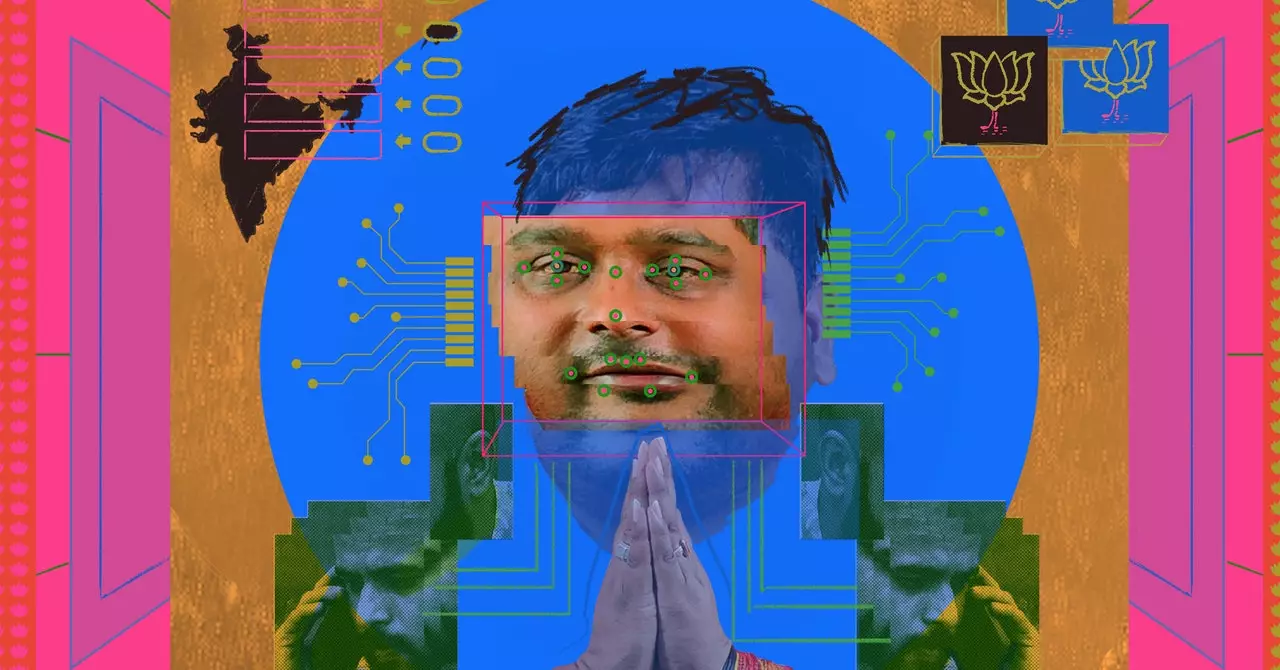In the bustling city of Ajmer, an unsettling scene unfolds as local politician Shakti Singh Rathore nervously sits in front of a greenscreen to be cloned by AI technology for the first time. As a member of the BJP, the ruling party in India, Rathore is being cloned in order to reach 300,000 potential voters around Ajmer through personalized deepfake videos. The director of the shoot, Divyendra Singh Jadoun, guides Rathore on how to behave in front of the camera to ensure a seamless deepfake creation process. This incident sheds light on the widespread use of AI technology in Indian politics, particularly during the general elections where deepfakes can significantly impact the outcome.
While the global discussion on deepfakes often revolves around misinformation and societal harm, Indian politicians are harnessing AI technology for a different purpose – voter outreach. Despite the potential benefits of personalized messages and tailored communication, the ethical implications of deepfake usage in politics cannot be ignored. The ease with which AI technology can distort reality raises concerns about the authenticity of political discourse and the manipulation of public opinion. By blurring the lines between truth and fiction, deepfake technology poses a serious threat to the democratic process and the integrity of elections.
In India, the use of AI-generated deepfakes has become a lucrative business opportunity, with an estimated value of $60 million. Polymath Synthetic Media Solutions, headed by Divyendra Singh Jadoun, is just one of the many firms offering deepfake services to political parties. Jadoun’s company has produced several AI campaigns for politicians, including creating deepfakes of deceased politicians to endorse their successors. The commercialization of deepfake technology in the political landscape raises questions about transparency, accountability, and the unchecked power that AI service providers hold over public perception.
The widespread use of deepfakes in Indian politics has the potential to sway voter behavior and influence electoral outcomes. By delivering personalized messages directly to voters’ phones, politicians can manipulate their perception and target swing voters more effectively. The seamless integration of AI-generated voices and visuals into campaign strategies blurs the boundaries between reality and fiction, making it difficult for voters to discern fact from fiction. As AI technology continues to advance, the risk of deepfake misuse in Indian politics grows, posing a significant challenge to the democratic process and the principles of transparency and integrity.
As deepfake technology becomes increasingly prevalent in Indian politics, there is an urgent need for ethical guidelines and regulatory frameworks to govern its use. The unchecked proliferation of AI-generated content in political campaigns raises concerns about privacy, security, and the manipulation of public discourse. By establishing clear guidelines and accountability mechanisms, policymakers can mitigate the risks associated with deepfake technology and safeguard the integrity of the electoral process. It is essential for political parties, AI service providers, and regulatory bodies to work together to ensure that deepfakes are used responsibly and ethically in the realm of Indian politics.
The advent of deepfake technology in Indian politics underscores the complex interplay between AI innovation, political communication, and ethical considerations. As AI continues to revolutionize the way political campaigns are conducted, it is crucial for stakeholders to engage in a dialogue on the ethical implications of deepfake usage and strive to uphold the democratic values of transparency, accountability, and trust. Only through collaborative efforts and responsible decision-making can Indian politics navigate the challenges posed by deepfake technology and uphold the principles of fairness and integrity in the electoral process.


Leave a Reply